By Will Gerhard —
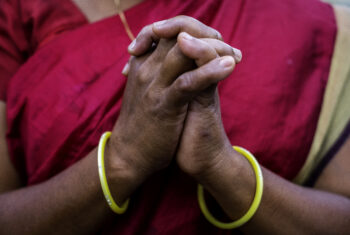
A group of seven women in Southern India come together to talk, to cry, and to pray.
They come together as Christians, they mourn together as women whose husbands were murdered right in front of their eyes. Some of them were holding their husbands as they were brutally stabbed to death in the chest and face. One of them painstakingly reminisces of the day she saw her mother burned alive.
The women witnessed the most heinous and extreme forms of injustice, creating a lifetime of afflictions, held firmly within a deep emotional scar. The wounds of which are stitched together by steadfast faith that their Lord will deliver them from the pain of this life, and that one day they will reunite with their husbands in Heaven.
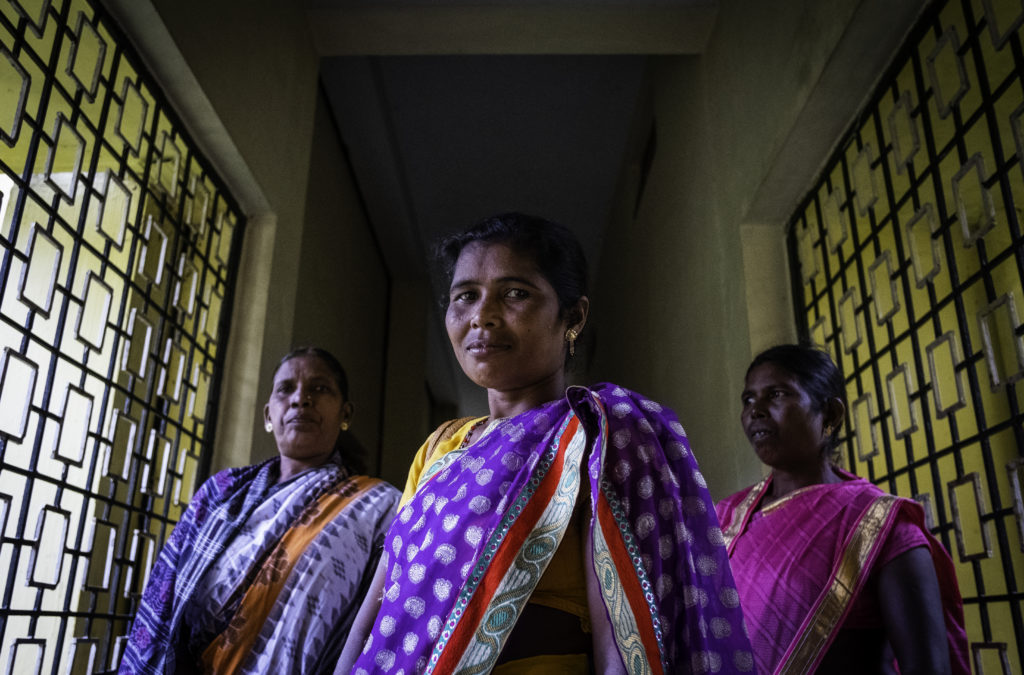
Their entire village region was ravaged by hate-filled actions. Every house was burned to the ground. Those who didn’t lose their father, lost their brother. Those who didn’t lose their brother, lost their husband.
In northern India, a small car zips through the busy streets of Kashmir. The driver, Arif, spent his whole life saving enough money to buy this taxi, known in their culture as an ‘auto rickshaw.’ With every passenger that steps into his vehicle comes an opportunity for him to preach the Gospel of Jesus Christ. In a state that is 99.5% Muslim and violent towards individuals of any other religion or set of beliefs, this is what he does.
He shares this Gospel in that car to the most rejecting of souls; that was, until locals caught on and burned his auto rickshaw, his livelihood, the way he supports his family, to the ground.
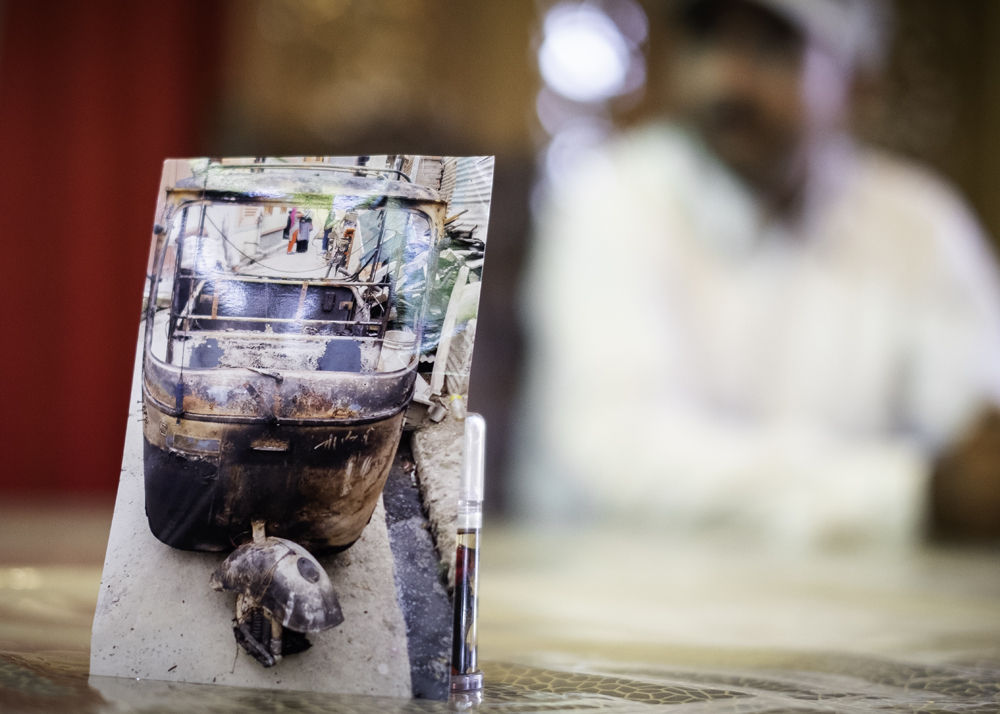
The vehicle he drives today, he rents. He does this to keep his business alive, but does so at a major cost. That cost, that burden, is no greater than the burdens that the non-believers whom he preaches to carry with them in their lives every day, and so he continues to proclaim the name of Jesus.
All around him are armed military and police. To his right there is a meeting place where militants and extremists come to stone people to death. Amidst the chaos, a light shines bright out of an auto rickshaw that navigates through these streets of hate, spreading love through evangelism.
Hundreds of kilometers away in Odisha, a Christian leader stands on top of his roof, looking out into his community. The backdrop is dominated by massive mountains and a verdant jungle that harmoniously make up the scenery. He points at several men working in the street, one by one, identifying them as some of the arsonists that worked together to burn down his home and every other Christian home in the area. His house has since been reconstructed; today this is where he lives, where he serves, regardless of the conditions and persecution he faces. This is what life looks like for a Christian in much of rural India.
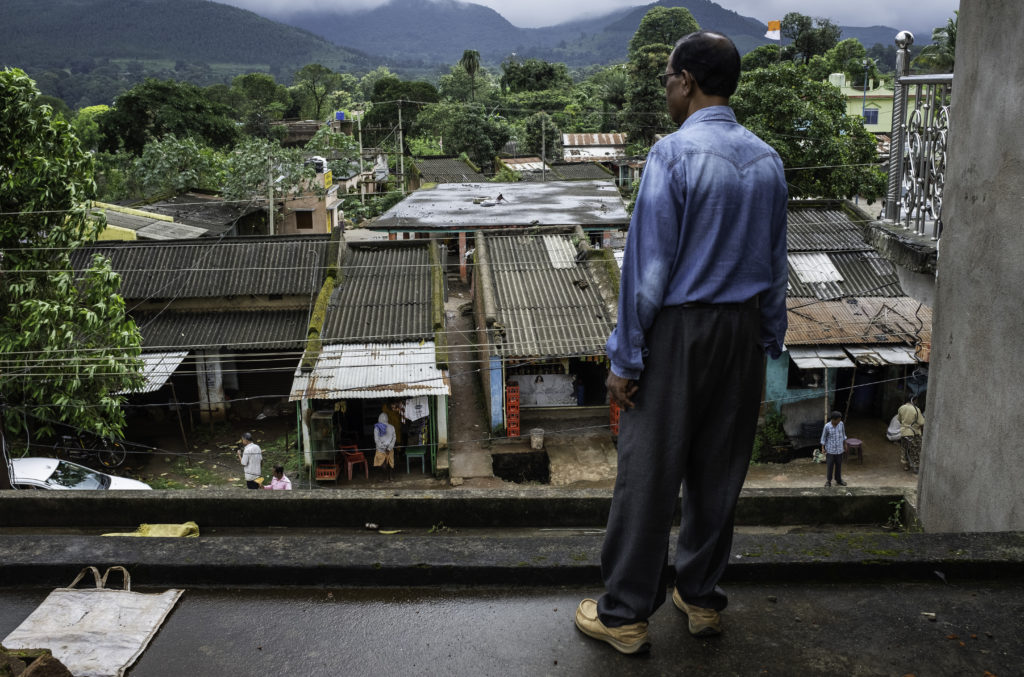
The Riots
On August 23, 2008, Swami Laxmanananda was murdered in the Kandhamal district of Odisha, India. Local reports show that at the time of the murder, his bodyguard was not present and police guards fled when the assailants entered the building. Police immediately imprisoned seven Maoist men who they believe organized the murder of the Hindu leader.
During this time, Sangh Parivar, an offshoot group of the Hindu nationalist organization RSS (Rashtriya Swayamsevak Sangh), blamed Christians for the murder, saying it was an international conspiracy organized by the church. They declared that Christianity was banned in Kandhamal.
Deadlines were issued to Christians who were commanded to denounce their faith and follow Hinduism; those that didn’t comply were often arrested, buried or burned alive, or publicly slaughtered. Reports show that riots throughout Kandhamal and surrounding areas lasted for nearly three months.
Humble Christian villages tucked deep into the pockets of a vast mountainous region, where souls were saved and ministries were formed, wiped out by an evil flame that shot through the jungle. When the flame dissipated and all that remained was a mixture of dirt and ash, the scene was almost unfathomable, even in the darkest of nightmares: 100 Christians dead, 300 churches destroyed, 600 homes demolished, and 56,000 people were now homeless. There are some heroes in this story but their reward was a lifetime sentence in prison.
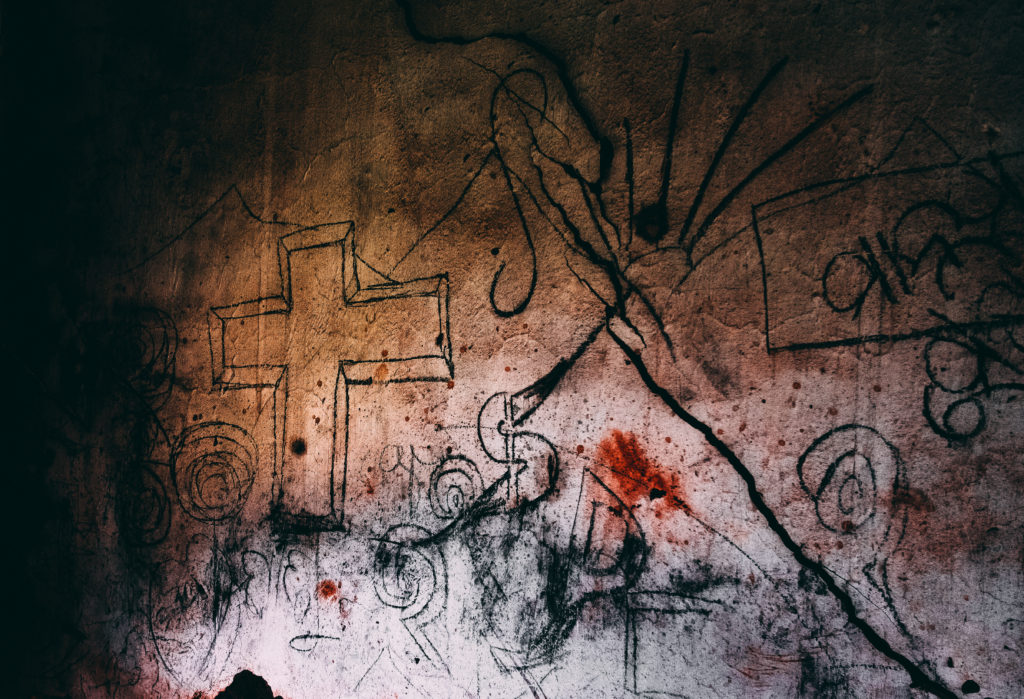
After just 40 days, police released the seven Maoist men originally suspected of organizing the murder, and arrested seven local Christian men.
A wife of one of the imprisoned innocents grabs at her sleeve, dampened by the tears that have surged down her face, recounting the horrible injustice through the help of a translator.
“In the middle of the riot, our husbands were volunteering to help the people of the villages. They were directly targeted because they were known to be the people who were helping their own people”.
BJP (Bharatiya Janata Party) leader Pravin Togadia (not the police) declared that these seven Christian men were the alleged killers. Propaganda was published using fake quotes and fabricated storylines to back the BJP leader’s claims, none of which were ever proven to be true. Several of these men have proof that they were over 50 kilometers away from the crime scene at the time of the murder. During the first four years of the trial, there was no evidence that any of the seven imprisoned Christians killed the Swami, though they were all deemed guilty and sentenced to life in jail.
“These brothers were pulled out of their houses at midnight,” said a local Christian leader. “They were not asked to come to the police station politely, they were taken without any cause”.
Put yourself in this situation: today you’re putting aside everything in your life to go help those who have nowhere to go and no one to help them. Tomorrow, you’ll be put behind bars for the rest of your life on earth. The climax in this narrative is when your door gets plowed through in the middle of the night. Unexpected, unwarranted, and unimaginable. You get pulled away as your family weeps and huddles for protection on the cold, dirt floor. The only thing that each of you know is that when the sun comes up tomorrow, life will be different forever.
The men who were taken away first heard about the Swami’s murder when a local Catholic priest brought the news to their villages in person. Reports show that six of the seven accused men are illiterate, one is described as handicapped and non-social, and all of them were known to be Christians.
Bouts of injustice against the affected families continue still to this day. According to a local Christian leader, “when the independent judge was there, he was in favor of the bail, but all of a sudden he got transferred, so a new judge came.”
Since then, the case has been delayed and though the women have been assured that their husbands will be bailed out, there has been no noteworthy progress. These women, drawn together in tragedy, grieve over the course this case has taken. When the men were first imprisoned, they were put in the same jail, but have since been moved to different jails throughout the district. Still, the estranged wives have been visiting their husbands monthly for the past ten years.
One of them quivers as she opens her mouth to speak. She says that their husbands have been able to spread the Gospel of Jesus Christ while in prison. But as the narrative shifts, her voice begins to tremble and she recounts a time of greater hope. A time when the judge in charge of the case could be viewed as their savior, their means of making things right in their lives. But as he abruptly departs, reality sets in – he was never their savior to begin with; their savior is in Heaven, where He reigns and continues to watch over this case, which is in the state’s highest court. Faith is lost in the judicial system, but faith is found in the work that their Lord and Savior Jesus Christ has done for them on the Cross. They recount His sacrifice and patiently remember the country’s national motto, “Truth alone triumphs.”
Today, there is an online signature campaign to release the innocents, which you can visit at www.release7innocents.com. At this writing, more than 72,000 people have signed the petition.
The Aftermath
Prakash, the Christian leader in Odisha, comes down from his roof and welcomes guests into his house. He offers them tea, bread, and a word of prayer. He leans back in his chair and reminisces. In 2007, he brought 40 orphaned children into his home, a common measure among pastors in areas ravaged by disaster in India. By 2008, radical locals wanted to kill him.
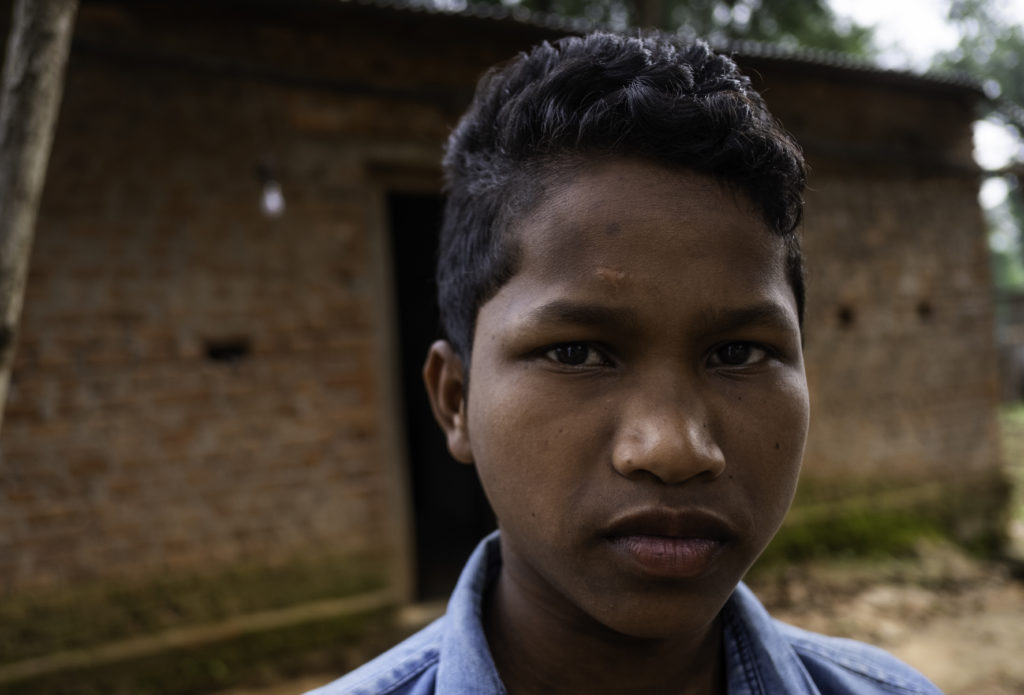
“I was bound to leave my housing by evening,” he recounts. “I left everything. I went to the forest with the children. By 7:30 they burned down my house.”
The next two days were spent deep in the wilderness of the jungle, the next two months were spent in a relief camp, or rehabilitation home site. In this scenario, Christian non-government organizations (NGO’s) send representatives to set up tents and give the newly homeless people food and supplies to sustain them for the time being. This is the process by which many of the aforementioned 56,000 that became homeless were given shelter following the riots.
Two months in relief camps passed and Prakash returned to his property, which now housed the remains of his former home. The government offered him money to help with the repairs and told him he was free to return here, but they gave him no assurance that it would be safe. The two-year rebuilding process was underway, following a generous donation from Christian NGO’s to help pay for the rest of the reconstruction.
Still, many others remained in relief camps. The timing could not have been worse, as this was also monsoon season in Southern India. The Christian women who were widowed were placed in a high security rehabilitation area, for safety reasons. Each day passed, and more rain came. Their dirt floors had turned into mud. They could no longer eat or sleep on the floor, as they are accustomed to in their culture. According to them, conditions became so severe that they could not even reach the bathrooms outside of their tents. With their children, they prayed and waited.
“Only by faith are we able to overcome that tragedy,” said one of the widows. Balancing the loss of husbands, fathers, brothers, and homes, some of their greatest prayers at this point were just for a stable floor to sleep on.
The losses these women and children endured, and the conditions they now live in, are closely traced back to actions of members of the RSS and BJP, the perpetrators of these riots.
A story exists in local Christian circles that shortly after the riots, a herd of wild elephants migrated through Kandhamal, just as they do every year. This migration usually occurs in December, though in 2008 it happened shortly after the riots in August. The extremists that started the riots led an evil plan to wipe out every Christian home in sight. The elephants that were on migration returned the favor. Local reports show that non-Christian villages, home of RSS and BJP members, were completely wiped out as elephants stormed through their communities. Along the way in other villages, some Christian homes were damaged, though no Christians died. In the end, reports show that at least 5 members of the RSS were killed in the elephant migration of 2008.
A Christian’s Search for Work in India: An Uphill Battle
The bumpy drive from Bhubaneswar, the biggest city in Odisha, to the state’s remote outskirts offers a blend of sprawling, open countryside and bustling, packed villages. Stray cows, goats, hogs, monkeys, and dogs double as roadway obstacles between the many shops and storefronts that line the streets. The owners of these shops are all Hindus. Due to the state’s caste system, which subjects Christians to the bottom of the ladder, all Christians are poor. The most common source of income for Christians in tribal regions comes from the land. From water pumps to chairs, anything that offers some comfort and convenience to these believers comes from foreign aid or Christian NGO’s.
To the north in Kashmir, a group of Muslim background believers, known as MBB’s, search for opportunity but receive nothing but neglect, much like their brothers and sisters to the south. The sphere of persecution may look slightly different depending on location, but its impetus remains an evil core. Locals in Kashmir say that the unemployment rate there is 65% in this nearly 100% Islamic state. It is likely that the only Christians that are not in that 65% are those who dress and look Muslim, but have not publicly announced their conversion.
One of those MBB’s came with his family to talk to us at a private location. I asked him about his church, his friends who he worshiped with, the ministries he was involved in. Due to the laws in his state, there was no church for him to go to, and so there were no active ministries to be involved in. Many of his friends, his closest brothers in Christ, were no longer around. Their days on earth were numbered shortly after going public with their faith.
Arif, the auto driver, looks at his sideview mirror, and sees the reflection of an anti-Christian billboard he just drove past. Just down the street, a man named Achmed waits on the sidewalk to meet his family. His calloused hands reflect the work he does as a day laborer. On the outside, his white cap, beard, and outfit could group him with other followers of Islam. On the inside, he has a heart for Jesus. Before that heart came to the Lord, it was volunteering time to help at a disaster relief project following an earthquake in 2005. It was there that Achmed met Pastor Aaron, the Kashmiri Christian leader that fills the immense gap of believers in the state of Kashmir and Jammu.
Several years later, Achmed’s son became very ill, so he reached out to Pastor Aaron. He told Aaron that his son’s condition continued to get worse, no matter how he prayed at his mosque.
“Start reading the word of God because it is alive and you will grow in faith,” Aaron told him. “As you pray over your son, if you believe, God will do miracles over your son.”
His story, much like many converted Christians in the area, all started with a prayer. At this crossroads in his life, when he needed deliverance the most, he turned to God. And in the name of Jesus Christ he would pray, with full faith, and those prayers would be answered in his favor.
After nearly four painful years of illness, his son was healed. He and his wife agreed to convert to Christianity. He says he received peace from The Lord, and a death warrant from local nationalists who suspected his conversion. According to local testimonies of several Muslim background believers, those who are discovered to be Christian have three days to convert to Islam. Per Islamic Law, those who don’t abandon Christianity are often killed. By God’s grace, Achmed is still alive today. The man who brought these believers and several others in Kashmir to the Lord is the same Pastor Aaron who worked at that earthquake relief site in 2005. Aaron had been bringing Kashmiris to Jesus through community engagement for 15 years prior to their meeting, something he still does to this day.
Serving in the Light of Persecution: A Bold Man’s Cry to Endure for His Community
“When I came in 1990, my passion and vision and goal was to raise Kashmiri leaders in Kashmir,” said Aaron.
He knew he could mentor them and teach them to disciple others. In 2003, Aaron gathered 27 people to participate in what he described as a “peace process.” He also describes this as the first time he experienced persecution in Kashmir. Local police and military surrounded his house following an anonymous call that claimed that Aaron was baptizing people there. Aaron denied that there was any conversion going on and the police left, though they kept their sights on him from a distance.
Just three years later, Aaron’s plans to start a school were halted when local police and military intervened again. They saw his plan to bring Kashmiri’s to the Lord and left him with this ultimatum: close the school and run away, or you’ll die.
“We are from this place, we have to stay here,” Aaron boldly proclaimed. “We have to work for the Lord here, and we have to win souls for Christ here!”
The death warrant he received is called a fatwa, which is administered by a qualified jurist, according to Islamic Law. In his boldness, he stayed.
In 2014, a massive flood destroyed and washed away everything he owned. The flood waters eventually drained but that was nowhere near the end of the storm.
In 2015, Aaron was conducting a worship gathering when a mob stormed the building, once again accusing him of bringing Kashmiris to Christ. His noble acts landed him eight blames, or accusations, all of which were false. One of the “crimes” was providing jobs to young boys and girls. He spent 11 days in jail before being released on maximum bail. The final hearing for his case was in 2017. Miracles for Christians in the Indian legal system seldom occur. However, this time, no one came to testify against him. In fact, the man who originally put him in jail testified that Aaron was innocent of all eight charges leveled against him.
The reality is the violent culture in this state is not leaving. Those who are here to help others are being imprisoned for it. Innocent lives are being taken, many of them children; this is all done in their culture for the sake of Islam.
New Opportunities, New Life
Daniella shares her testimony with young girls as she trains them to give hair and skin treatments. This peaceful scene inside the beauty parlor is juxtaposed with the hostile streets of Kashmir that exist just beyond the building’s walls. These girls learn skills that they can apply to work on their own one day, something their government would never do for them. Daniella tells them about her daughter, who doctors thought was going to be born paralyzed with several serious health conditions. Through fervent prayer, faith and hope, her daughter was born perfectly healthy. Her middle name is non-traditional in Indian culture, but is a testament to the work that God has done in their lives: Grace.
Efforts such as these are made possible throughout India by the help and support provided by Cooperative Outreach of India (COI).
COI was founded in 1993 to address the needs of the most disadvantaged members in India: women and children. This demographic accounts for a large portion of those living in absolute poverty in the country.
COI has perhaps the greatest reach in bringing people to Christ in this country of over one billion people. Their work spans the entire nation, uniting Christian leaders and other believers together and offering them help and support for their ministries. This organization is run by a group of true warriors for Christ, led by Ramesh Landge and his son Ravi, or “Bearded Man” as many know him.
Bearded Man fills us in on the social climate as we arrive at a new location. He paints the picture for us, sometimes a dangerous one, with a smile. He offers love and compassion to all whom he meets, including those who want to kill him because of his efforts to spread the Gospel in this land.
When Ramesh came to the Lord in the late 1970’s, the Christian population was less than 1% in India. Today, statistics show that number has officially grown to 2.5%, though many believe that number is greater than 5% and could be as high as 10%.
Since June 2010, Ramesh and other Christians in India have produced a TV show called “The Truth.” They discuss various topics on religion, many of which are controversial to non-believers. The program averages 16 million viewers an episode, and for thousands upon thousands that live in Muslim cultures, this is the first time that they hear the Gospel.
“When they get to know the truth, their eyes pop open,” Ramesh said.
Several thousand have been converted to Christianity through the program since it started less than a decade ago.
Locally, COI holds events through their Love Delhi Campaign that unites young adults in their city for a night of food, music, and a message of God’s love. In northern India, they have been running sewing and tailoring centers in 100% Muslim regions for the past 12 years. Hundreds of women have heard the Gospel through this mission, which currently operates three different tailoring centers. According to Ravi, the women arrive at the center wearing their burkhas, but remove the veil once they’re inside the building because they feel at peace there.
No Compassion for the Children
Indian Prime Minister Narendra Modi was elected to power in 2014. Since then, nationalists have made it a priority to end Christianity in their country. India is now ranked as the 15th most difficult country to live in as a Christian, according to Open Doors World Watch List. Just five years ago in 2013, India was ranked 31st on this same list. According to a petition on change.org aimed at raising funds from the Modi administration for children, of the more than 470 million children in India, 33 million are child laborers, 80 million are without an education, and 97 million are undernourished.
Before they were forced to close their doors for good in March 2017, Compassion International supported as many as 145,000 children in India. These children were given an education, meals, school supplies, clothes, and several other benefits. According to local reports, Compassion closed by saying they had to shut down due to a lack of funding resulting from government restrictions.
“Compassion’s main tagline was, ‘releasing children from poverty in the name of Jesus.’ They did not like that,” said Ramesh Landge. “Compassion International was shutdown because the government knew a lot of children were accepting the Lord.”
These kids were taken out of school, denied opportunity, and stripped of many of their human rights because the government viewed this as a threat to their culture.
“The ban severed the influence churches had over various communities across India,” said Ravi Landge. “This meant that many Christian community clinics, churches, and tuition centers got shut down because they couldn’t sustain themselves. What we are seeing is discrimination in the government sector (with the BJP in power) where people groups from minority religions are denied access to good jobs.”
Landge described that this creates a sense of inferiority and economic instability within Christian communities across India. The government recognized that if these children grew up holding on to the Christian faith, it would put a dent in Hindu ideology. So, they denied them education, opportunity, and much needed care.
Hope for the Children
When Compassion International was forced to shut down, COI stepped in to take over the support for as many of these children as they could, starting a project called Genesis of Hope (GOH). Many of the teachers who worked with Compassion before the shutdown continue to work with the same students, but do so at a fraction of the salary they used to make. Genesis of Hope has six centers where they pay for the students’ education and provide them with meals.
“We continue to still run the six centers passionately, because for us, it was about the relationship with the teachers and kids,” said Ravi. “GOH is a replacement portal for our kids who lost sponsors.”
There are still 350 children who are waiting on sponsors. Those who are willing to invest in these children can sponsor a child for just $1 a day at www.genesisofhope.org.
“If it’s Called an Orphanage, the Government Will Shut it Down”
The orphan crisis in India is not only ongoing, but growing. Any establishment that houses orphans must operate under the name “tuition center,” or else the government will shut it down. Local pastors who we met with in Kandhamal, where the riots occurred, are fearful that they will lose a generation of believers if the orphans are neglected and become dropouts. Through the support of Christian NGO’s, they receive funding to help these children that the Indian government does not give a chance.
We arrive at one of these tuition centers, where several young children greet us with a smile. Their parents are gone from this earth. Many of them were just months old when the injustice that took place orphaned them. Some were just old enough to understand what was going on; they carry the memories of seeing their parents murdered in front of them and dragged out the door. They never got to say goodbye to their parents, but today they say hello to us, strangers.
They gather by the entrance and wipe their hands across our feet, a sign of respect and gratitude in their culture. Their educational opportunities are few and far between. The care they receive, they share among themselves, from a good Samaritan who dedicates their life to helping these children. Just hearing the stories of how they got there is heart wrenching. Conceptualizing the injustice they have endured and the lifetime of hardship that has been thrown onto their backs would knock the strongest of souls over. But they stand there. They laugh amongst each other, often looking back at us to see if we understand the jokes they are presumably saying about us.
These young, bold, Christians line up to sing us a song before we leave. No spotlights come on, but the joy they express when they sing is illuminating. Praise Jesus. Praise Jesus. Praise Jesus, they sing. They clap and smile and sing some more, and you can see God’s glory in this moment. Their performance wraps up, and on our way out, they come over again to touch our shoes, not realizing how much their strength and faith has touched our hearts.
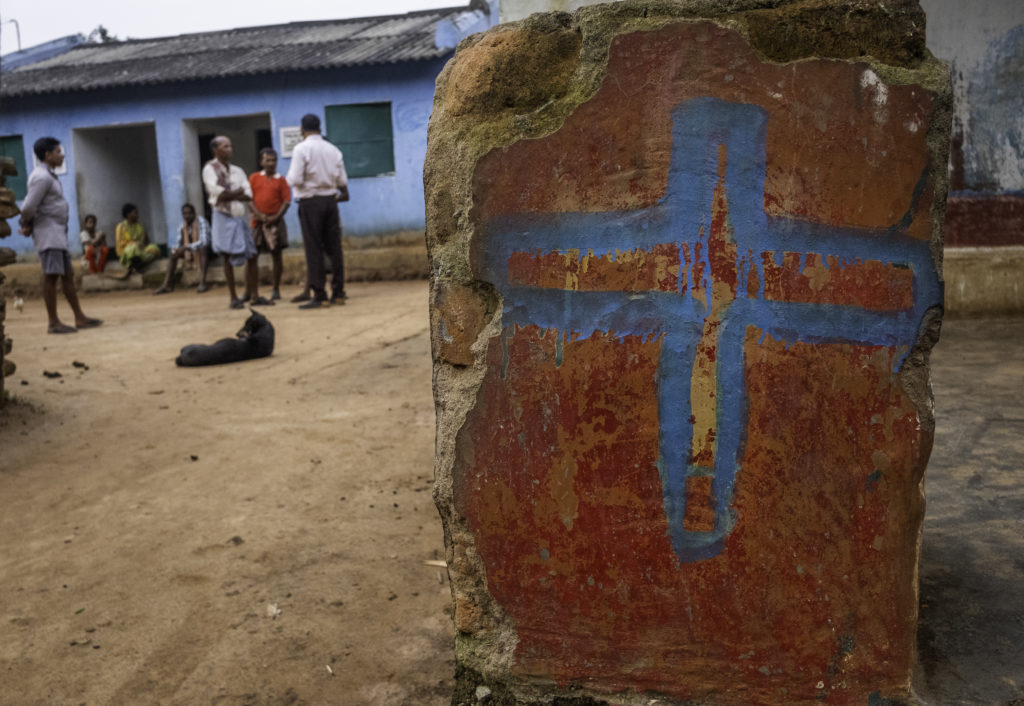
“Truth Alone Triumphs”
Many of the individuals interviewed for this story have asked for their real names to be published, however many of the names have been changed to protect the persecuted. Studies show that the rise of religious nationalism in countries dominated by Islamic and Hindu ideology has brought high, very high, or extreme levels of persecution to more than 200 million Christians around the world.
According to Open Doors, 39 million of the approximately 64 million Christians in India have experienced direct persecution. These examples of direct persecution reflect much of the aforementioned: abuse, deprivation of education and work, imprisonment, and death.
When the 2019 election comes around, if BJP officials stay in power, there is expected to be a radicalized Hindu movement. The RSS, the radical Hindu organization involved in the riots, were the ones who got the BJP and Prime Minister Modi’s administration into power. Locals in predominantly Muslim states brought up the likelihood of a civil war, between Hindu nationalists and militants from Muslim states.
Within this core, the innocent Christians who were framed and imprisoned for a murder they did not commit, denied work and an education, were habitually abused and neglected, will continue to wait for their day of justice. They reflect on the pain and persecution they’ve endured in this life, and reminisce on times they had with their Christian brothers and sisters before they were martyred. They remember these times, these people, and they pray to their God. They carry their cross and focus on His promise, that one day Christ Jesus will come again and deliver them from the brokenness of this world.
“And there will no longer be any night; and they will not have need of the light of a lamp nor the light of the sun, because the Lord God will illumine them; and they will reign forever and ever.” Revelation 22:5 (NASB)




Thank you for sharing this incredible story Godreports!
Comments are closed.